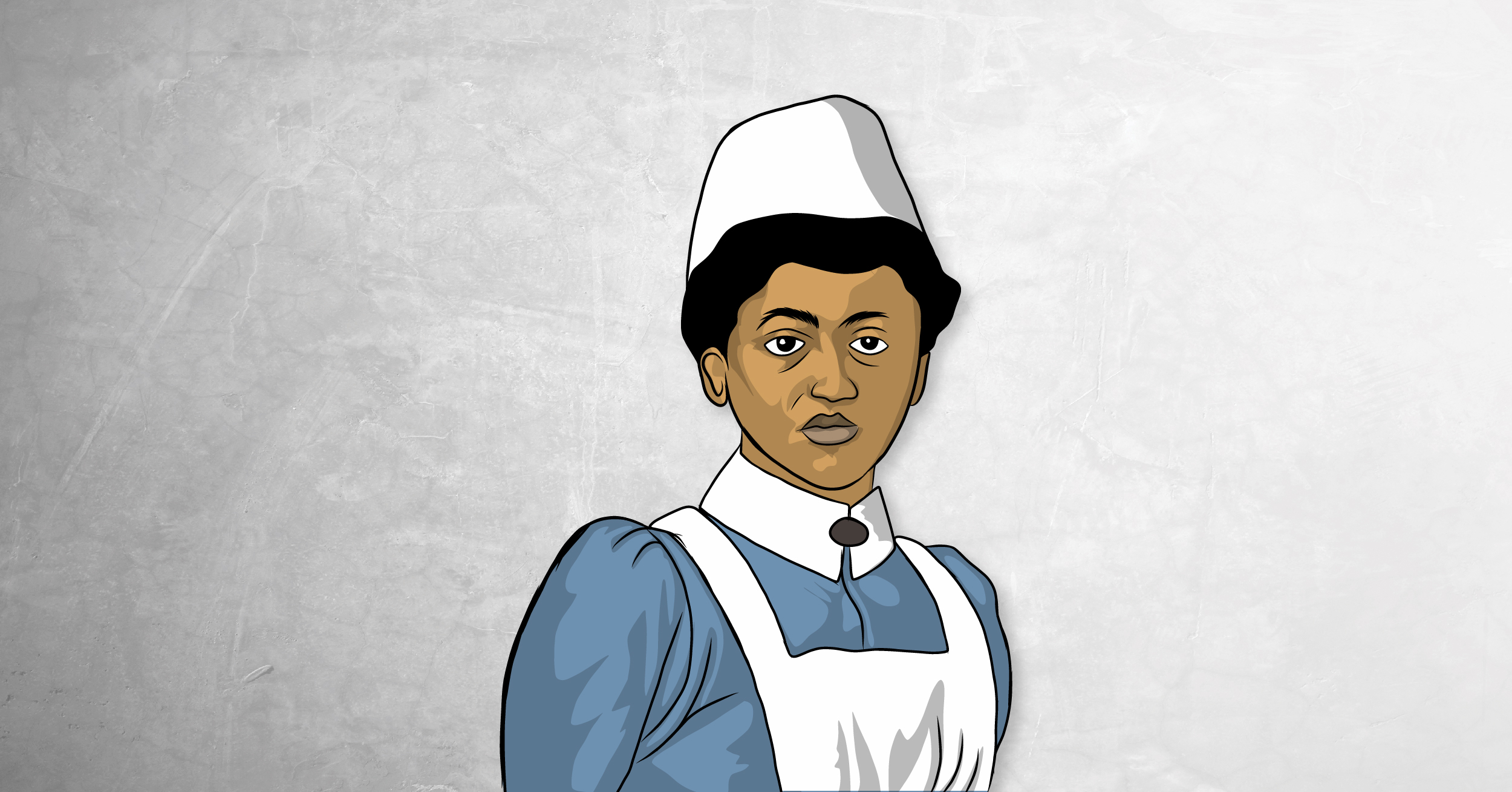Illustration by: Capu Toons
In one corner of South Africa’s Eastern Cape province lies Mdatsane township, the home of the superstructure with the sign CMH, the Cecilia Makiwane Hospital. The woman who the hospital is named after was a force to reckon with in the medical profession, not just in South Africa but in Africa as a whole. Her memory is marked through the hospital and through a statue outside the Lovedale Hospital. She had to be honored in multiple ways.
In the beginning…
Cecilia’s journey began in 1880 when she came into the world, fists clenched, eyes tightly shut, before she broke into a healthy, full-throated yowl. She was the latest arrival within the MacFarlane Mission in Eastern Cape and the second child and daughter of Reverend Elijah Makiwane and Maggie Majiza–Makiwane. This was a time when the Cape Colony (now South Africa) was rife with conflict between the Zulu and the British. It was also the diamond rush era.
Cecilia’s father, an ordained reverend and teacher, was one of the pioneer literate and formally educated Africans of his time. He is remembered as a firm believer in women’s education (and believed that Africans should use English and education to advance themselves but not to determine their identity). For these reasons, he worked towards educating his children, so that they would be among the educated Africans.
Cecilia’s mother died two years after Cecilia’s birth, shortly after the birth of her third child. Cecilia’s father stuck to his goal and his children were first homeschooled, where they learned basic literacy, before they enrolled into the formal school system.
For her secondary education, Cecilia joined Lovedale Girls School, a girls secondary school within the Lovedale Missionary Institute where her father had previously taught. When you have a parent working as a teacher, educational merit is the benchmark. Upon completion, she obtained a certificate in teaching and it seemed that she would follow her father’s path and venture into education.
Bitten by the nursing bug
But then in 1898 the Lovedale Mission Hospital opened an experimental nursing training school for African women interested in and qualified to pursue nursing. By 1902, the Lovedale College added a nursing course to its directory and the following year Cecilia took a leap of faith and joined the College.
Some may have wondered why a trained teacher would opt to extend her time in school, but Cecilia was driven by passion, a calling towards health. Three long years later, Cecilia was closer to her desired nursing title, but not quite there yet. To further equip her for a career in nursing, she was sent to Butterworth Hospital. She sat for the Cape Colonial Medical Council (CCMC) examination in December of 1907 and a month later results were out.
The long and short of it is that 1908 began on a high note for Cecilia. When she received her results slip that January, two things were clear: she was a registered nurse, and the first African woman in both South Africa and on the entire continent to achieve this distinction.
The activist nurse
Cecilia commenced her nursing career at Victoria Hospital, the Lovedale Mission Institute’s hospital, where she worked as a ward nurse. However, at the time, while there were a notable number of educated Africans, and others still enrolled in the formal education system, there was a pre-existing pass system in South Africa. This system regulated black people to carry residential passes and had passed as a law in 1893. By the 1900s, times had only gotten worse for Black South Africans, especially women. In the years leading up to 1908, there had been petitions by Africans complaining about the harshness of the laws passed to control them, and while some requests were considered and responded to, African women’s voices were ignored and so they continued carrying passes.
In 1906 and 1908, the African People’s Organisation (APO) complained about the cruelty of the government towards women without passes, highlighting the discrimination associated with the arrest of women by the authorities for allegedly breaking pass laws.
Eventually, African women who had had enough decided to act. And so in 1912, they sent around a petition to towns and villages as one of the actions under the women’s anti–pass campaign. A year later, Cecilia was among 800 women who gathered at City Hall to tell the Mayor they would no longer carry passes. It wasn’t entirely a futile attempt, and while the situation in the coming months and years continued to fluctuate for women, the campaign still goes down in liberation history as one of the strongest female movements on the continent.
Fading away into the night…
After the campaign, Cecilia resumed her nursing duties, but work slowly started taking a toll on her physical and emotional well-being. Conscious of these effects on her duties, she requested for and was granted an extended leave of absence. She went to live with her sister, Daisy Makiwane, and in 1919 passed away from an unspecified illness.
Cecilia’s title as a nurse paved the way for many other African women who followed suit. Her name is inscribed in the legacy of the Makiwane family, which produced several pioneers during her time and while her time alive was brief, she inspired cohorts of African nurses who came after her.

